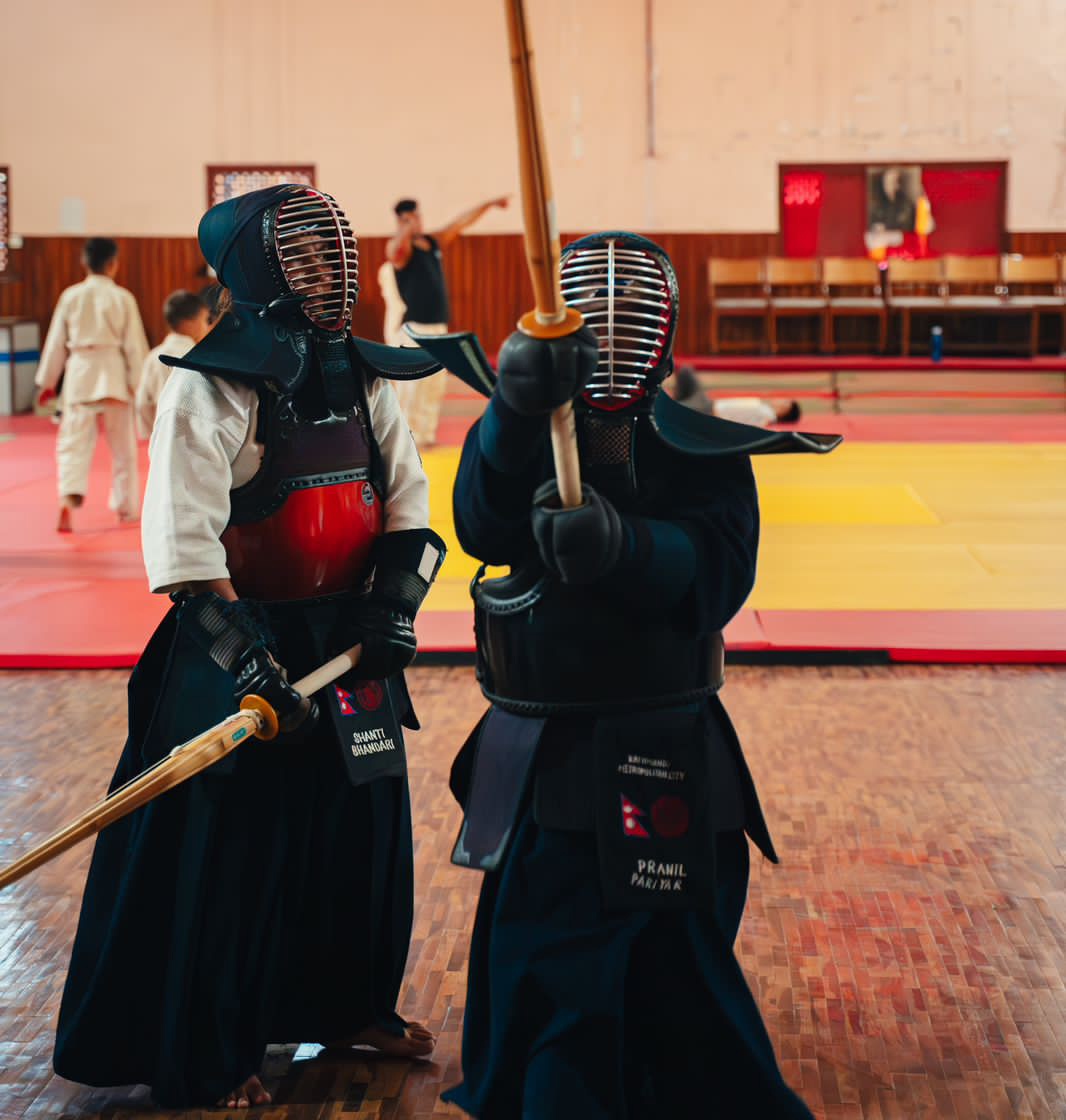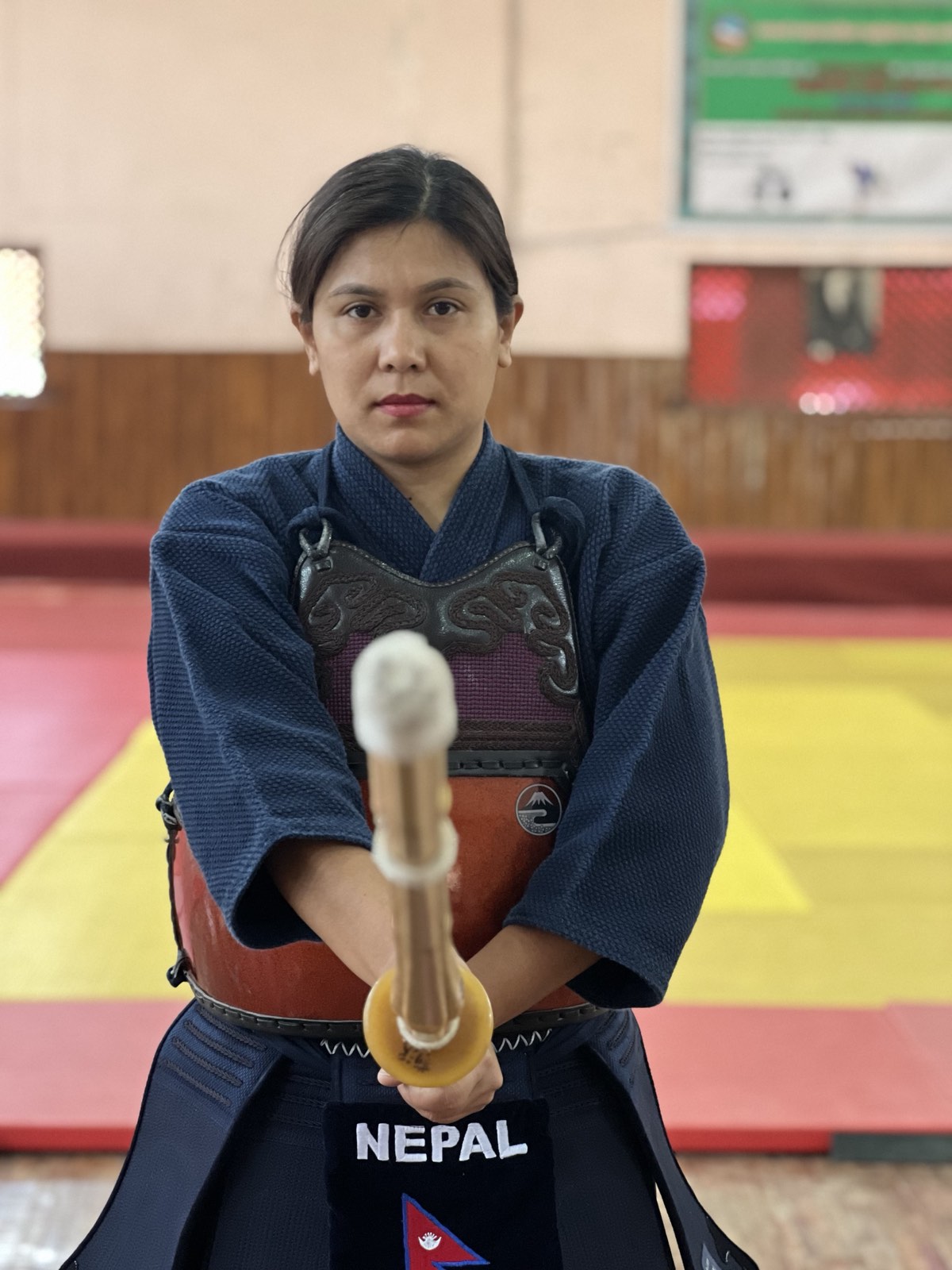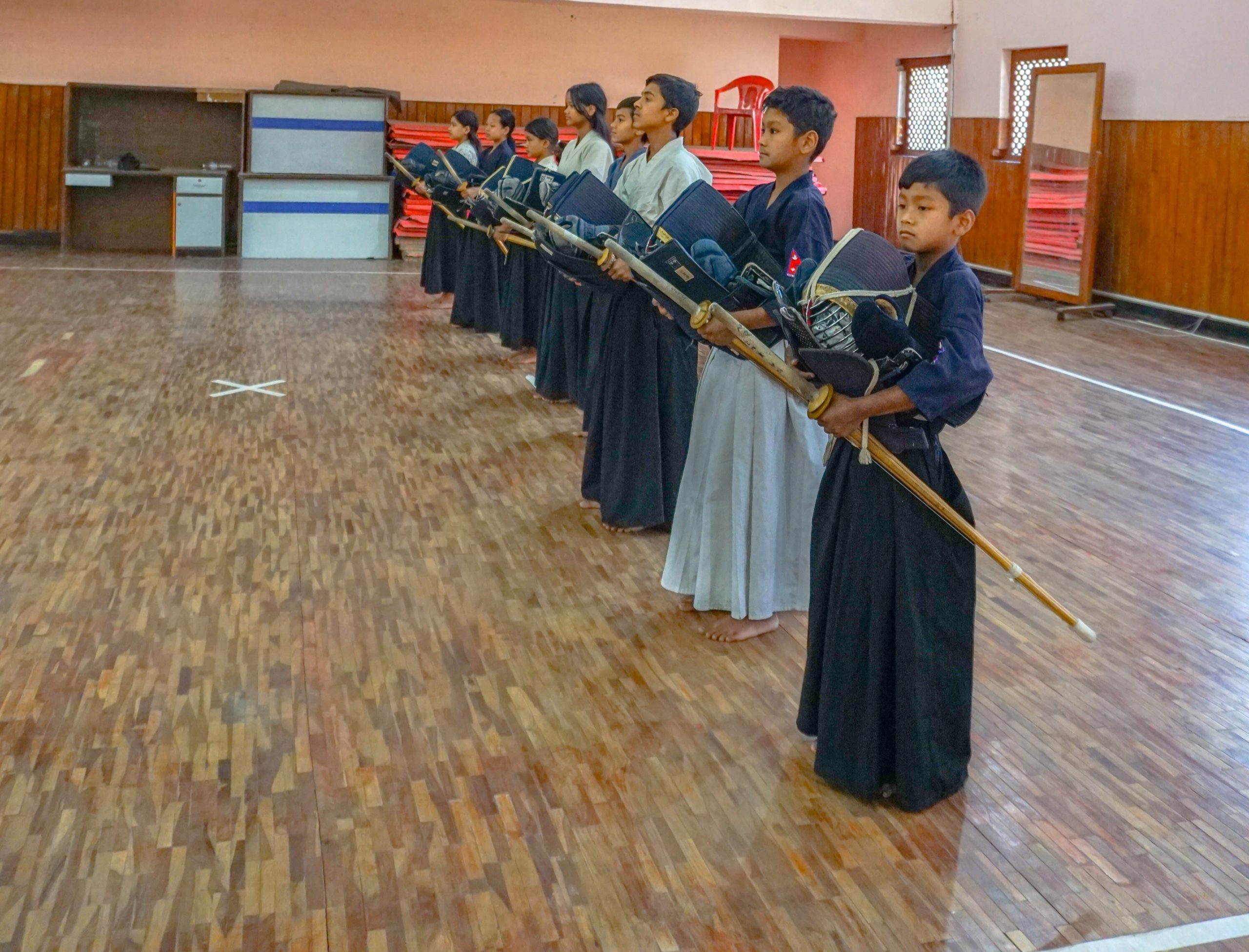Nepal Kendo
The Nepal Kendo Martial Arts Organization is dedicated to promot and preserve the art of Japanese martial arts, specifically Kendo, in Nepal. Nepal Kendo was established in 2023 with the goal of introducing and spreading the practice of Kendo throughout Nepal. The organization aims to provide opportunities for both Nepalese citizens and individuals dedicated to Kendo from foreign countries to learn and engage in this traditional martial art form. The primary objective of Nepal Kendo is to develop and nurture a strong Kendo community in Nepal. For this, Nepal Kendo offer regular training sessions and workshops for both beginners and advanced practitioners.
Nepal Kendo training sessions cover various aspects of Kendo, including proper footwork, striking techniques, and mental discipline. In addition to training sessions, Nepal Kendo also holds seminars and workshops conducted by experienced Kendo instructors, both national and international. These events provide an opportunity for members to learn advanced techniques and engage in exchanges with practitioners from other countries. Furthermore, Nepal Kendo actively participates in regional and international Kendo events and tournaments where Nepalese Kendo practitioners have successfully represented Nepal in various international competitions, showcasing their dedication and skills.
Nepal Kendo imparts values such as discipline, respect, and perseverance. Through Kendo practice, members learn to cultivate their minds and bodies, developing a strong character that extends beyond the training hall. The Nepal Kendo is shaping a future generation of skilled Kendo practitioners while cultivating the core values of this martial art.
History
Kendo, “Way of the Sword”, originated from a martial art of handling the Japanese sword and was formerly called ken-jutsu. This art was pertinent to “Bushi” the warrior class of feudal time of Japan. After the era of “Bushi” or “Samurai” terminated in the middle of 19th century, it was transformed into a sport for the physical and especially moral and spiritual training for people from all walks of life, and ken-jutsu developed into kendo.
Since the International Kendo Federation was established in 1970, kendo has become very popular particularly in some Western countries such as Germany, France, U.K. and also in Asian countries such as South Korea, China, Malaysia or Thailand.
The history of Kendo in Nepal is a testament to the enduring spirit of cultural exchange and the global appeal of martial arts. While Kendo’s presence in Nepal is relatively new compared to its centuries-old tradition in Japan, its journey reflects a growing interest in traditional Japanese culture and a desire for physical and mental discipline among Nepali practitioners.

Early Beginnings
The formal introduction of Kendo to Nepal can be traced back to the early 2000s when the Multipurpose Martial Arts Center (MMAC) in Kathmandu was established as a joint initiative between the Katmandu Metropolitan City (KMC) and Matsumoto City, Japan. The MMAC was envisioned as a platform for promoting mutual understanding and friendship between Nepal and Japan through martial arts Kendo.
Foundation and Development:
In 2001, Kendo was officially incorporated into the programs offered at MMAC, marking the beginning of its institutionalized practice in Nepal. With support from Japanese organizations such as the Japan International Cooperation Agency (JICA) and the Embassy of Japan in Kathmandu, Kendo training sessions were initiated, lead by experienced instructors from Japan and local volunteers.
Objectives
Cultural Exchange
Introduce Kendo as a cultural ambassador, fostering understanding and appreciation of Japanese traditions among Nepali youth.
Physical Development
Provide a platform for physical fitness and mental discipline through Kendo training, enhancing participants’ overall well-being.
Skill Development
Offer structured coaching in Kendo techniques, equipping participants with self-defense skills and promoting discipline, focus, and resilience.
Community Engagement
Encourage participation from diverse community members, promoting inclusivity and social cohesion through shared Kendo experiences.
International Collaboration
Strengthen ties between Nepal and international country by incorporating Kendo into the existing framework of cultural exchange between all over the world.
Future Plans
Training Programs
Establish well training programs lead by experienced Kendo instructors catering to participants of all ages and skill levels. These programs will encompass both basic techniques and advanced strategies, ensuring holistic skill development.
Promotional Events
Organize Kendo demonstrations and workshops to raise awareness and attract new participants. Collaborate with local schools, community organizations, and media outlets to publicize these events and showcase the artistry and discipline of Kendo.
Competitions and Championships
Host inter-school, inter-club, and regional Kendo competitions and international friendship tournament providing participants with opportunities to test their skills in a competitive yet respectful environment.
International Exchange
Facilitate exchange programs with Kendo practitioners from Japan and other country inviting guest instructors and teams for training camps, seminars, and cultural exchanges. Similarly, encourage Nepali Kendo enthusiasts to participate in training camps and competitions held in international plate farm.
Our Team
Management Team

Management Team
Shanti Bhandari

President/ Instructor

